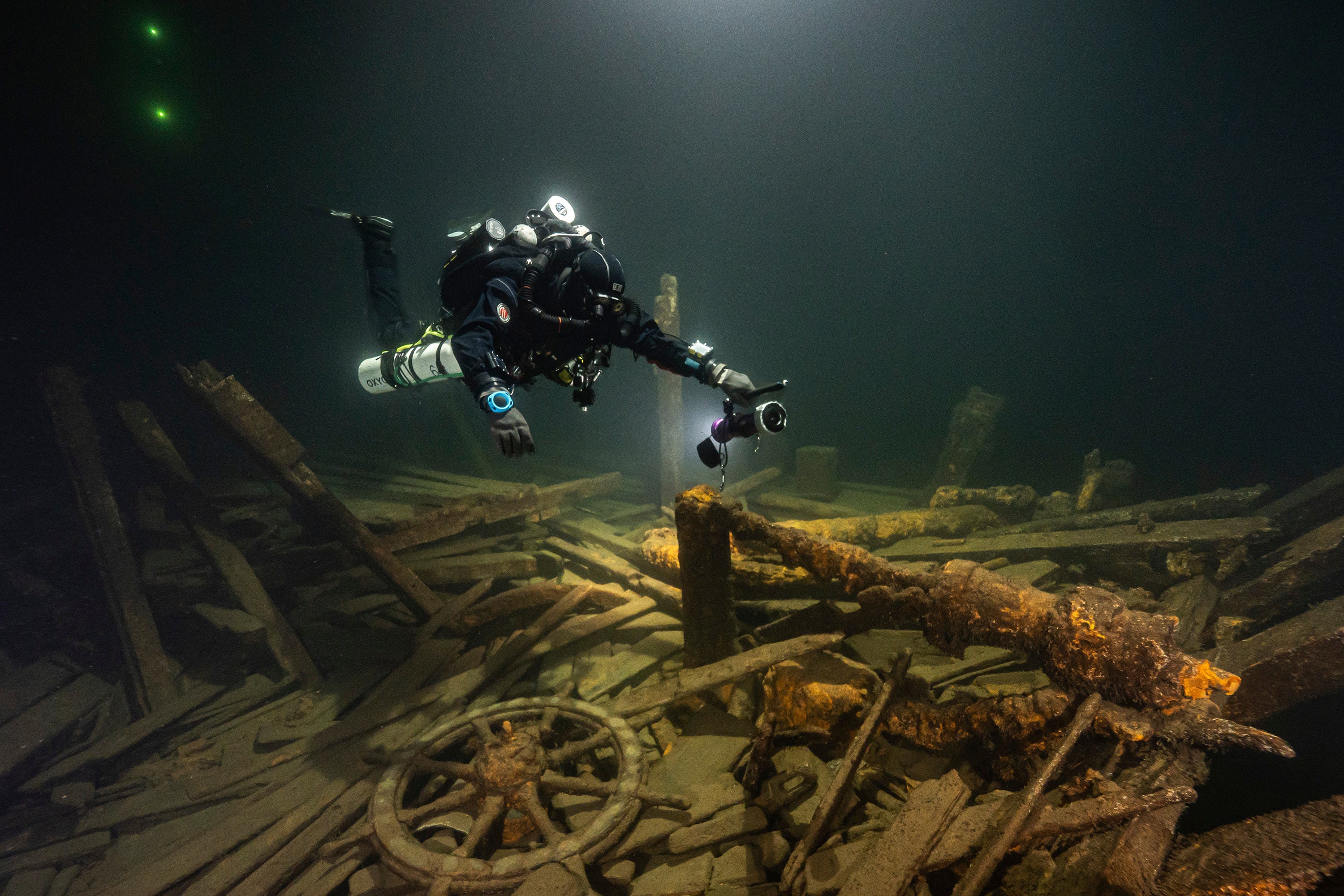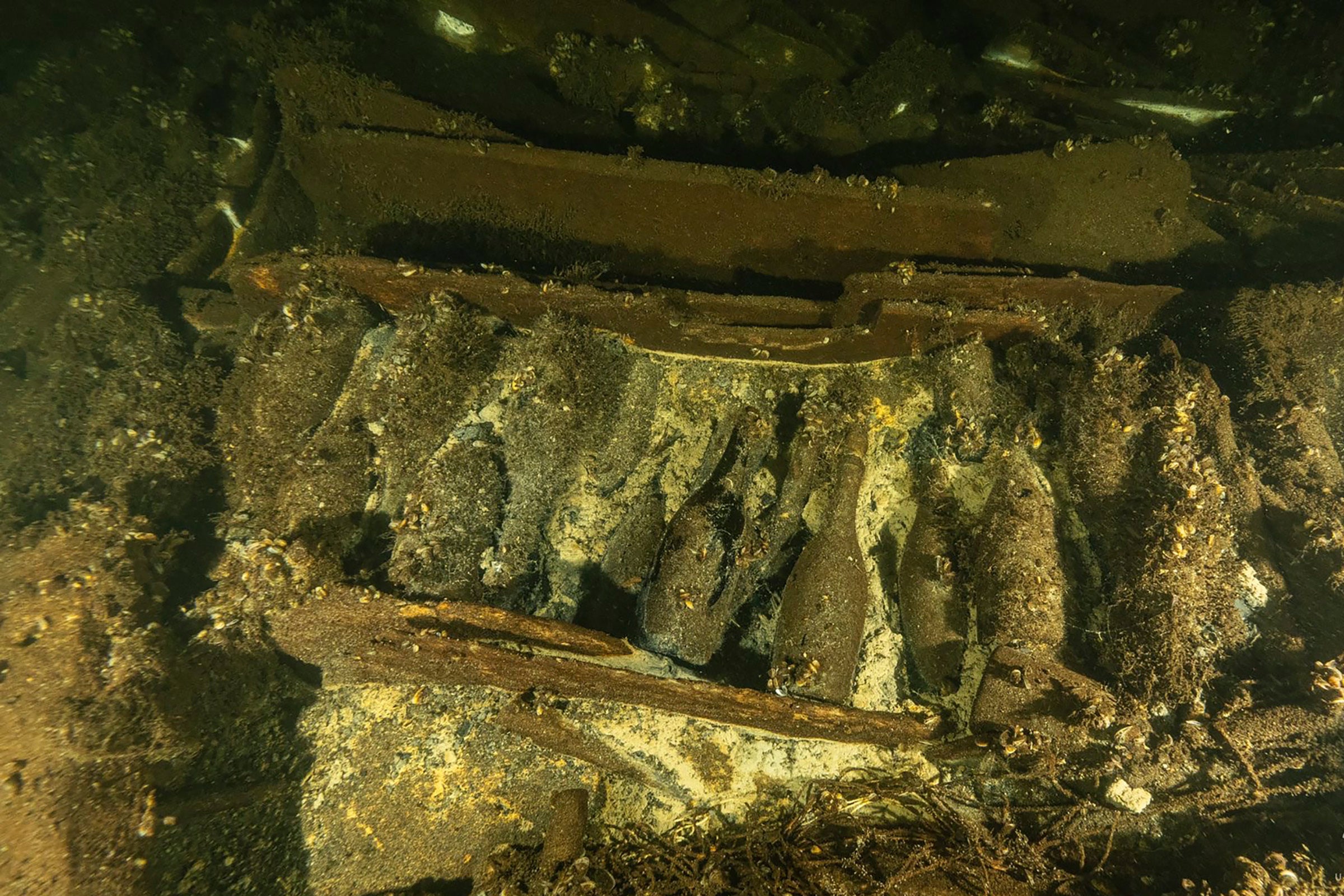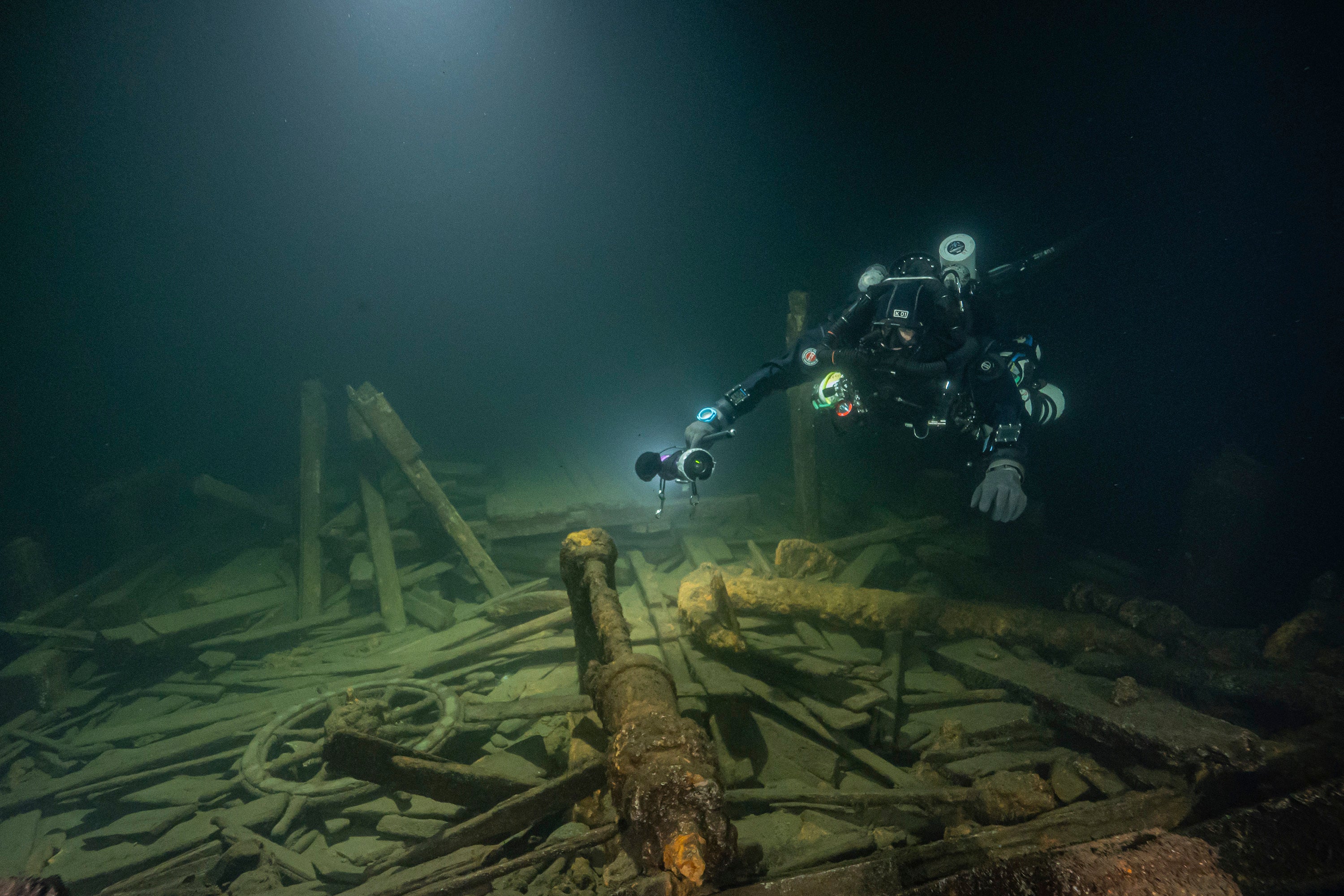A shipwreck is filled with Champagne and nobody can try it
Swedish authorities have put their foot down and labeled the sunken ship ‘an ancient relic’

Nearly 100 bottles of 19th-century Champagne and mineral water nestled in a shipwreck off the south of Sweden will remain there – for now.
No one will be allowed to fish out the bounty without proper authorisation, officials said on Wednesday.
Though the wreck's location has been known since 2016 and is registered in Sweden's National Antiquities Office’s cultural environment, it was only on July 11 that Polish scuba divers found the precious cargo.
The wreck, which sits at about 58 meters (190 feet) deep off the coast of the southern Sweden county of Blekinge, was found by the divers while they were checking spots of interest about 37 kilometers (20 nautical miles) south of the Swedish Baltic Sea island of Oeland.
Diving group BalticTech detected what appeared to be an old fishing boat on their sonar, about 20 nautical miles south of the Aland Islands, situated between Sweden and Finland.
“At first, there were doubts whether there would be anyone willing to go down,” the group mentioned in a post on their website. However, two divers decided to explore and took the plunge.
When they failed to return after two hours, the remaining team members suspected that “there was something very interesting on the bottom”.
They were right. The divers descended to find a 19th-century sailing ship “in very good condition, loaded to the sides with champagne, wine, mineral water, and porcelain”.
Wine and water experts have quickly contacted the divers and been vying to carry out laboratory tests on the contents of the bottles, according to the divers' leader, Tomasz Stachura. However, Swedish authorities have put their foot down and labeled the sunken ship “an ancient relic” which the county says requires “a clear and strong protection” to remain intact.

“You must not damage the ancient remains, which also includes taking items from the wreck, e.g. champagne bottles, without permission from the county,” Magnus Johansson, a county official told The Associated Press. “The champagne bottles are a fantastically well-preserved find that gives us a snapshot of shipping and life on board at the end of the 19th century,” he added.

Had the wreck been from before 1850, it would automatically have been listed as an ancient relic, local authorities said.
“But we have established that the cultural and historical values of the wreck were so high that it should be declared as an ancient relic,” Daniel Tedenlind, a county official in neighboring Kalmar.
Stachura, the diver, earlier said it was believed that the cargo could have been on the way to the royal table in Stockholm or the Russian tsar’s residence in St. Petersburg when the ship sank sometime in the second half of the 19th century.
Bookmark popover
Removed from bookmarks